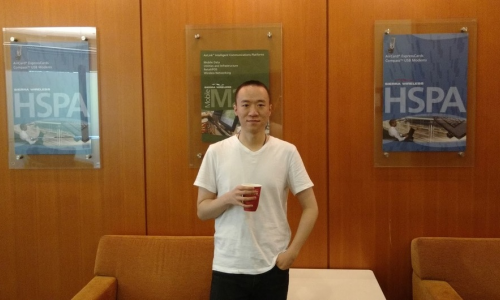This past spring semester, I did a co-op term at Deloitte with the Global Employer Services (GES) line. GES specializes in cross-border tax services for expatriates, which involves tax consultation and filing returns. The role involved understanding both Canadian and U.S. individual tax law, which created a steep learning curve to overcome.
With any new position, it can be overwhelming to learn all of the organization’s processes and clients. However, utilizing your office network by asking questions is key to making a successful adjustment. This article will focus on how to develop good questions, and how they can help you stand out in a new position.
What are Good Questions?
Good questions:
-
Demonstrate a careful and conscientious thought process
-
Show initiative for solving potential issues
-
Demonstrate an ability to see past surface issues and plan ahead
Taking the time to ask good questions actually increases efficiency and effectiveness in the onboarding process. Think of it as taking the initiative to clarify ambiguous areas, learn your company’s protocols, and problem solve. A small investment of time from colleagues to answer your questions will yield huge returns in your onboarding, and it will be apparent when you quickly become a fully functional contributor in your team.
Formulating the Question
When you come across an area you are unsure about, avoid your first reaction to immediately ask for help. Immediately asking a question when you get stuck does not follow the definition of a “good question”, and it does not show problem solving skills or initiative. It may just come off as lazy.
Spend 15 to 30 minutes problem solving, experimenting, and trying to solve the problem yourself. The best outcome is that you find the answer. However, even if you cannot, at least you will be more prepared when asking for help. This means you will have an idea of what did and did not work and a clearer idea of what the real problem is, which will make your question more specific. This shows that you have taken the initiative to try and create solutions that will make others’ jobs easier.
Asking Your Question
With my work at Deloitte, there were many factors in people’s lives that affected their individual tax returns. Their family, employment, or living situations could drastically change our approach to filing. In situations where there were many layers of complexities, it was essential to plan out a question to make it both comprehensive -- relaying all the background information -- and succinct, to avoid confusion.
The 15 to 30 minutes spent problem solving helps here. Providing background information on the problem and techniques you’ve tried provides the listener with a better idea of the situation. Additionally, since you will have a clearer picture of the issue, rather than needing answers and solutions, you will mainly need clarification and guidance. A measurable goal is to try to minimize how many times your coworkers will have to go to your desk to study the problem themselves.
Who Do You Ask?
There are different levels of colleagues to reach out to for questions, and each grouping has its own general characteristics to pay attention to. I have identified different levels of colleagues as follows:
-
Newer Full-Timers: Ask them more general or process-related questions. They will be more familiar with the on-boarding experience and can sympathize with your confusion with processes. They can also provide good tips on adjusting and learning in the new environment.
-
Senior Staff: They are good to go to for help when a situation becomes complicated and requires more experience. They can advise on a wide variety of situations and provide seasoned insight.
-
Managers: Remember that managers have busy schedules managing the team and external relations. Ask managers questions that are more subjective or preferential and will be relevant to their decision-making.
As you can see, each grouping has its own characteristics, so use good judgment when deciding who to consult. Each group can advise well in different areas, so be sure to spread your questions among them.
Working Your Way around the Room
Even the nicest people will get agitated from being overloaded with questions. Be mindful of people’s time and move around the room directing questions to different people.
This technique has many benefits. By asking questions of different people, you will create connections and make a stronger impression on your co-workers before you leave. It is also a great opportunity to learn from experienced professionals with diverse backgrounds and knowledge in areas of your interest. Take the time to draw from their knowledge and background and learn about their careers and experiences because you can learn things you would not have found out in school. The people you get to know can be the greatest takeaways from your co-op experience.
Mediums for Asking Questions
Below are three mediums to ask your question:
-
In person: This is useful for clarifying bigger issues requiring deliberation that need an immediate response. Be sure to gauge people’s busyness before asking for their time.
-
Instant Message: This is very useful for asking short questions since it also takes little time for the other person to respond.
-
Email: Email is helpful for reporting progress and clarifying several areas needing more guidance. This is also useful during busy periods because the receiver has a choice of when to respond. You can also open up the possibility of having a meeting to discuss.
In this article, I discussed what good questions are, how to come up with them, who to ask, and how you should ask them. Asking good questions is a skill, and therefore requires practice. By having the opportunity to practice this skill, I was able to make lasting connections during my co-op term and gain from the insights of experienced professionals. After reading this, I hope that you will have a fruitful co-op experience as well!
Beyond the Blog
-
To learn more about opportunities like Nathan's, visit SFU's Business Co-op homepage.
-
Looking for more tips on how to succeed in the workplace? Check out student articles on Workplace Success.














